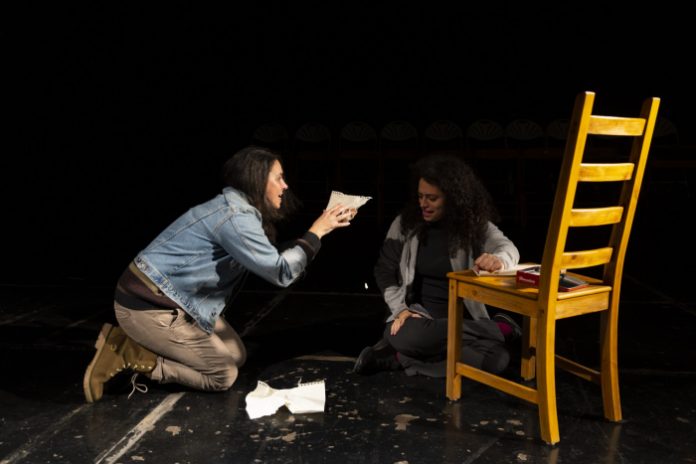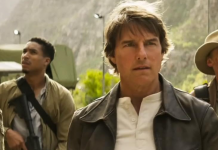Edward Bond’s Chair explores the difference a chair can make in an
apocalyptic future, at Spazju Kreattiv from 21-30 April.
A satirical play opening next month at Spazju Kreattiv will soon transport audiences to a dark, alternative world – and ask if a simple act of human kindness can make a difference.
Performed between 21-30 April as part of Spazju Kreattiv Season 2022/3, Edward Bond’s Chair takes a trip to an apocalyptic future in which family means nothing and people are products. Divested of their humanity, people must live through a new version of Auschwitz – but what impact can a chair make, in such a future?
Adrian Buckle and the Malta School for Drama and Dance present the new production of Chair, which is one of English dramatist Edward Bond’s trilogy of plays around the same theme. A stellar cast of top performers brings the alternate world to life, featuring Erica Muscat, Ann-Marie Buckle, Alex Weenink and Faye Paris. Likewise, director Clive Judd leads an experienced creative team that includes sound designer Michael Quinton, lighting designer Chris Gatt and set designer Romualdo Moretti.
While The Guardian touted the London production of Chair as ‘a strangely hypnotic play that proves a chair is as potent a visual symbol for Bond as it was for Vincent van Gogh,’ the Malta production promises an equally mesmerising and thought-provoking experience for audiences.
The story follows Alice (Erica Muscat) who takes care of Billie (Ann-Marie Buckle), a young woman who is on the autistic spectrum. Billie loves to draw and to show Alice whatever she draws. Yet, Alice has a secret – one that she must keep from Billie, to keep her safe from the State. As a blast from Alice’s past hits the two women, she notices a young soldier outside their flat accompanying an elderly prisoner. And, in a decision that would change their lives and invite the unwelcome attention of the State, Alice takes pity on the prisoner and decides to offer her a chair.
“What does the future have in store for us? What will it be like?” asks Adrian Buckle.
“Bond’s play explores what the world could eventually become in the not-too-distant future, and what really matters even in those darkest of times. The playwright’s six ‘pictures’ – his version of scenes – offer a chilling tableau, glimpsing a future where humans are products and compassion is a crime.”










